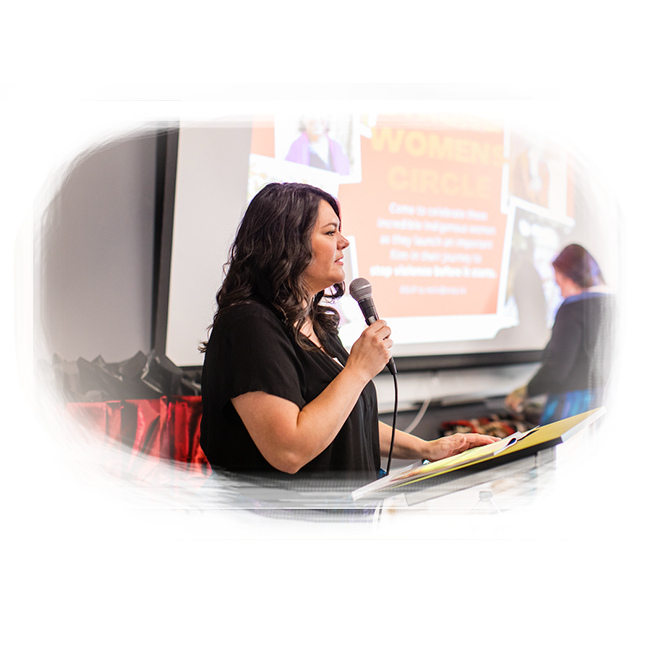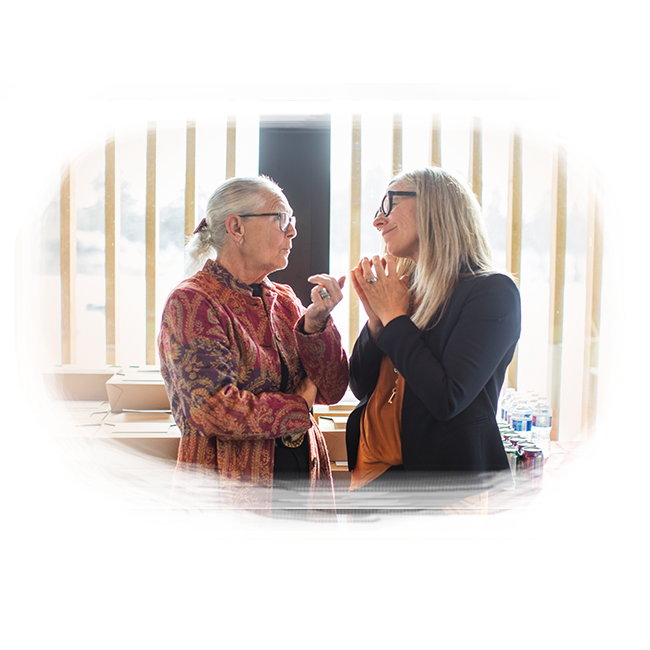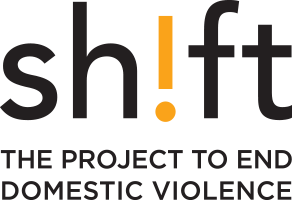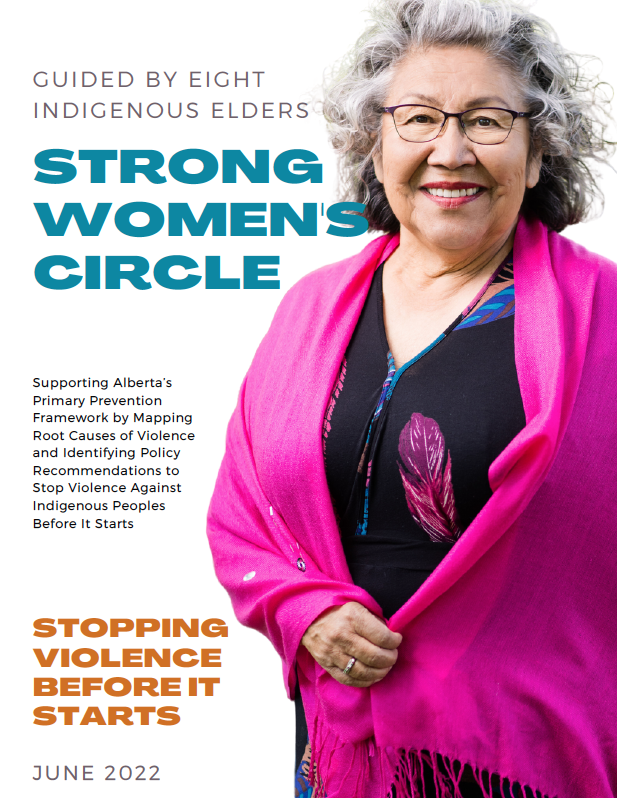
WORKING WITH INDIGENOUS PEOPLES TO PREVENT FAMILY VIOLENCE
Rationale
Colonialism and the denial of self-determination for Indigenous nations are the central conditions from which interconnected forms of violence arise, including family and sexual violence.
The continuum of colonial violence experienced by Indigenous communities is gendered. Countries that have experienced colonialism are 50 times more likely to have a high rate of intimate-partner violence against women, and in Canada, the rate of sexual assault against Indigenous women is approximately three times higher than among non-Indigenous women.1, 2
Anti-violence work on Indigenous land, where colonial practices and policies still persist, must adopt a decolonial perspective. Applying parallel processes with Indigenous communities is essential to developing a proactive approach to preventing violence against Indigenous peoples before it occurs.


Our Response
We are working towards a future vision where Indigenous peoples can enjoy a life of sovereignty, dignity, justice, and equity that is free from violence. In doing so, we strive to conduct our research by creating an ‘ethical space’: this means valuing the discussions and solutions that arise when Indigenous and Western worldviews come together to co-create meaningful and sustainable solutions to complex social problems, such as family violence.
Our Work
2025
In 2025, we collaborated with USAY and Studio Lumen:to develop and release a third oral history film: “Strong Women’s Circle: The Next Generation”. Centring the experiences and insights of five young advocates, the film speaks to the impacts of ongoing colonial child welfare practices and the world-building power of Indigenous youth as they work to stop violence before it starts.
2024
In 2024, we released a second film with USAY and Studio Lumen: “Strong Women’s Circle: Achieving Sovereignty in Our Children’s Welfare”. This film is a call to decolonize the child welfare system in Alberta, outlining why Indigenous service sovereignty matters, the problems with Alberta’s current child welfare system, the importance of thoughtful social work, and the possibilities for reimagining a new approach.
2023
In 2023, we partnered with USAY and Studio Lumen on the creation and release of a first film: “Strong Women’s Circle: A Systems Change Approach to Addressing Family Violence within Communities”. Understanding the importance of oral teaching and histories, the Indigenous Researchers, Grandmothers, Elders and knowledge keepers who led the creation of the 2022 report shared their insights in this film on healing, allyship, and how we can transform the systems that are causing Indigenous people harm.
2022
In 2022, Shift facilitated a primary prevention research project that was guided by 8 Elders and 3 Indigenous researchers and advocates to co-create meaningful and sustainable solutions to prevent family violence by providing cultural safety and a parallel process to walk towards Indigenous sovereignty, dignity, justice, and equity. The project produced a report titled Strong Women’s Circle: Supporting Alberta’s Primary Prevention Framework by Mapping Root Causes of Violence and Identifying Policy Recommendations to Stop Violence Against Indigenous Peoples Before it Starts and it provides detailed recommendations for policy reforms on justice and policing, child welfare, health, education, housing, and transportation.
Projects
Learn more about the projects Shift has advanced through working with Indigenous communities:
The Strong Women’s Circle:
This research initiative – through three oral history films and a report of policy recommendations for the Government of Alberta – proposes transformative changes to achieve Indigenous sovereignty and prevent violence.
References
1 Mannell, J. (2022). How colonialism is a major cause of domestic abuse against women around the world. The Conversation: https://theconversation.com/how-colonialism-is-a-major-cause-of-domestic-abuse-against-women-around-the-world-179257.
2 Brennan, S. (2011). Violent victimization of Aboriginal women in the Canadian provinces, 2009. Statistics Canada. https://www150.statcan.gc.ca/n1/pub/85-002-x/2011001/article/11439-eng.pdf.



